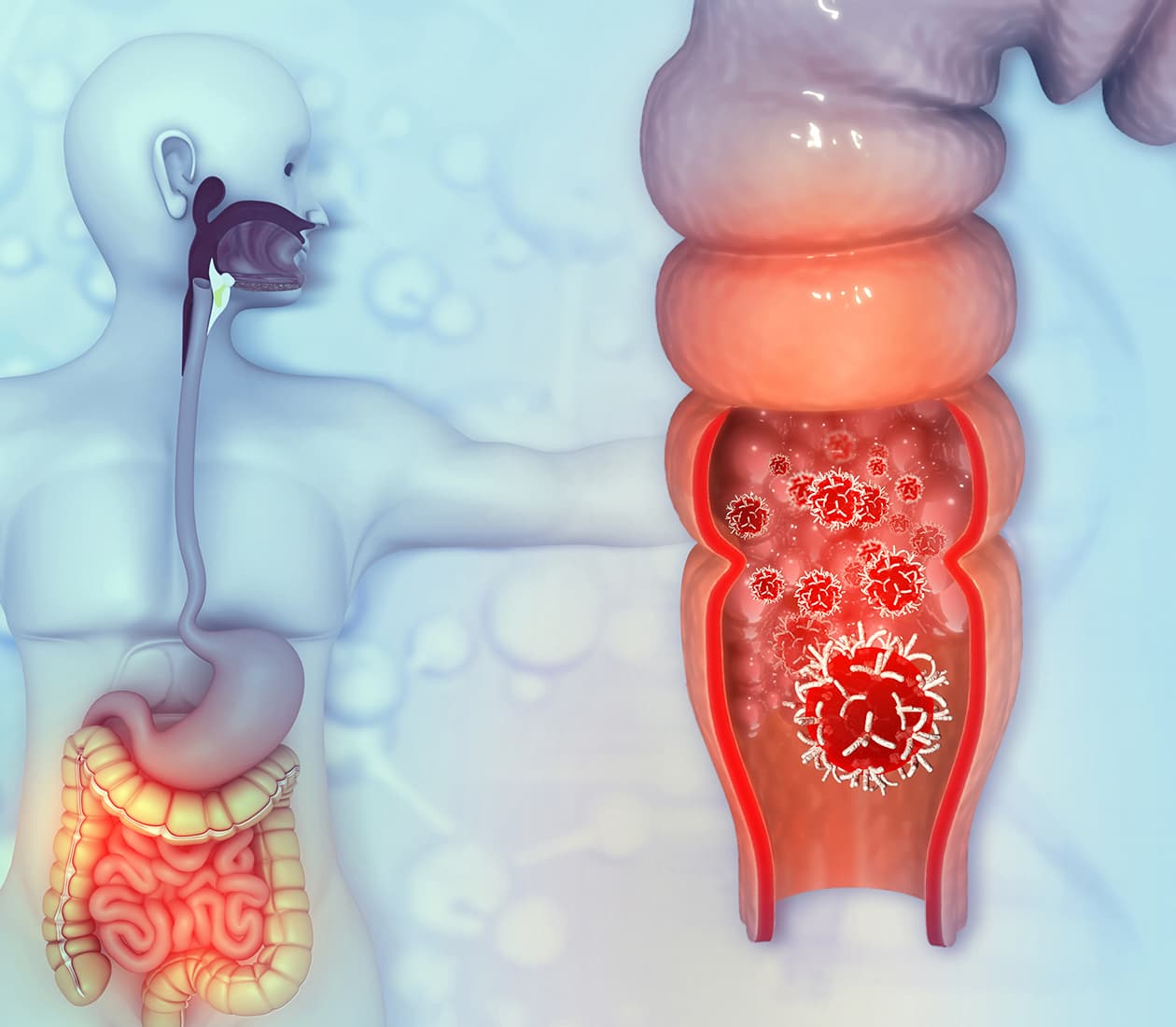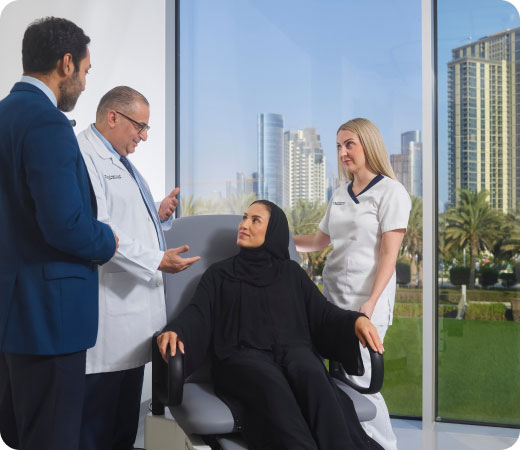
The multidisciplinary Colorectal Cancer Program at Cleveland Clinic Abu Dhabi provides state-of-the-art, compassionate, and culturally sensitive care for patients with colorectal cancer in the region.
Colorectal cancer is any cancer affecting the colon or rectum, also known as bowel, colon, or rectal cancer. Colorectal cancer is one of the most common cancers in the UAE affecting both women and men. It usually affects people over the age of 40, however over the last decade the number of cases affecting younger age groups has increased, internationally and locally according to the Department of Health (DOH).
Screening tests can detect colorectal cancer early and increase the chance of successful treatment and survival. Regular screening can also reduce your risk of developing colorectal cancer altogether. Our Colorectal Cancer Screening Program offers the UAE’s largest AI endoscopy center, supporting earlier, more accurate detection of colorectal cancer and better prevention of the disease.

Cleveland Clinic Abu Dhabi’s Colorectal Cancer Program works in close collaboration with Cleveland Clinic main campus in the US. This world class collaboration allows us to explore the best medical and surgical options to ensure the most successful outcome for each patient.
Our team of specialists, including hepatobiliary and colorectal surgeons, and medical and radiation oncologists, meet weekly to review every patient case for multidisciplinary clinical management decisions, tailoring treatment plans to their patients’ needs and seeking to further improve colorectal cancer care.
We also work closely with the patient and their family to provide the best chance of cure with a focus on improving quality-of-life.

The Colorectal Cancer Program treats the following conditions:

The most common symptom of colorectal cancer is a change in your bowel habits. This includes noticing blood in the toilet, persistent bloating or pain in the lower abdomen when you eat and unintentional weight loss or loss of appetite. If you notice any of these symptoms for more than a few weeks, you should see a specialist. However, in the early stages of colorectal cancer, there may be no symptoms, which is why screening is important.
The cause of colorectal cancer is unknown, but there are some things that may increase your chances of developing it. These include:

At the Digestive Disease Institute at Cleveland Clinic Abu Dhabi, our team of specialists are highly trained in a variety of procedures for the diagnosis and therapeutic treatment of colorectal cancers. Our Colorectal Cancer Screening Program offers the UAE’s largest AI endoscopy center in the UAE, allowing earlier, more accurate detection of colorectal cancer and better prevention of the disease.
If colorectal cancer is diagnosed, a treatment plan tailored to you is developed. Treatment involves a multidisciplinary approach, with experts from multiple specialties coming together to find the most appropriate course of action for you. Treatment may involve surgery and, depending on the size and location of the tumor, chemotherapy and radiation therapy may be necessary. The colorectal surgery team can usually perform minimally invasive surgery. Using state-of-the-art precision laparoscopic and robotic techniques, minimally invasive surgery means less pain, faster recovery, and better treatment outcomes. Treatments may include:
In some cases of rectal cancer treatment with chemotherapy and radiation therapy (sometimes also immunotherapy), the treatment team at Cleveland Clinic Abu Dhabi may offer specialized nonoperative surveillance (organ-sparing watch and wait approach) with the goal of avoiding surgery altogether for those who have a complete response to treatment.

In the UAE, colorectal cancer is the most common cancer among males, the third most common cancer in females, and it is a leading cause of cancer deaths. The number of colorectal cancer cases in adults under 50 is increasing and it is estimated that more than 41% of cases in the UAE are found in adults under the age of 40.
As symptoms of colorectal cancer often don't appear until the later stages of the disease, when it is more difficult to treat, screening can help catch it as soon as possible, with up to 90% of cases being successfully cured if detected early.
Routine screening is recommended for everyone over the age of 40. If you are considered at high-risk, screening should happen every year.
If you are over 40, schedule your colonoscopy today. It could save your life.
The Colorectal Cancer Screening Program at Cleveland Clinic Abu Dhabi specializes in the early detection and prevention of colorectal cancer. Screening tests include:
In addition to regular screening, increasing physical activity, keeping a healthy weight, limiting alcohol consumption, and avoiding tobacco can all help to reduce your risk of developing colorectal cancer.
Our Female Endoscopy Team
Often, women are reluctant to come forward for colorectal cancer screening, due to fear or embarrassment. At Cleveland Clinic Abu Dhabi, we offer an Endoscopy Team ‘For Women, By Women’. Led by our female gastroenterologist and supported by a team of nurses, physicians, and admin staff who are all women, we provide compassionate care in a culturally sensitive environment.

Patients undergoing colorectal surgery at Cleveland Clinic Abu Dhabi enter the Enhanced Recovery After Surgery (ERAS) program. This program involves bringing together a range of caregivers who work together to make sure you recover from treatment as quickly as possible. Caregivers involved may include:

Speak with our Contact Center for assistance
Request an Appointment 800 8 2223 International Patients